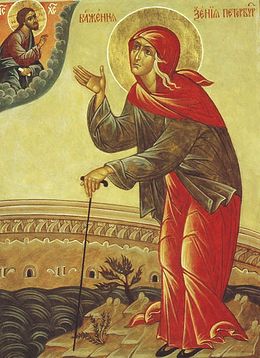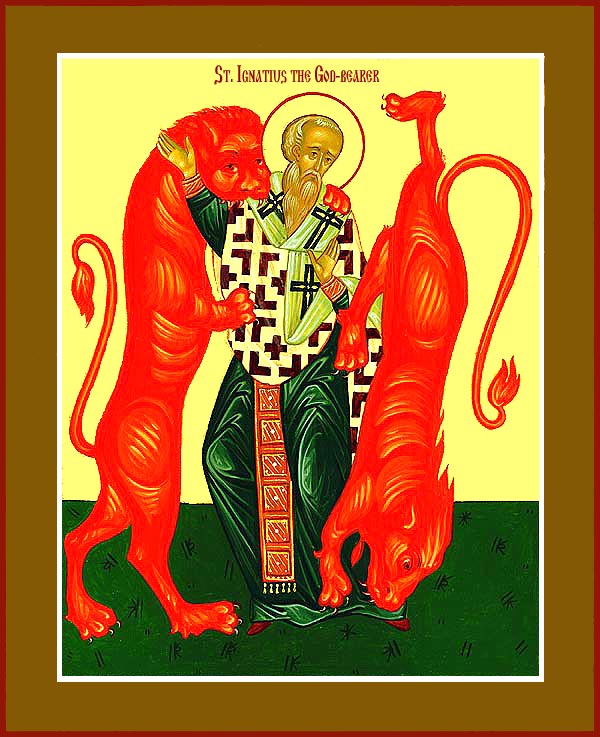Sermon of St. Mardarije on the Second Sunday of Great Lent
This sermon was delivered at the Church of Saint Olga Orphanage in Kishinev
My dear children. I visited your wealthy and valuable library, I saw very many interesting and beneficial books on various topics and saw you often reading these fine tomes. But to my great sorrow and disappointment, I did not see the most important of all books. I looked throughout the library and could not find a single Bible. You are not to blame for this, nor are your teachers, it is the spirit of the time that is to blame, contemporary society. This wonderful book is very hard to find even in the most eminent homes. It is considered to be an old, boring book whose days have passed. Oh how cruelly are people mistaken! There is no book more valuable than the Bible. There was not and will not ever be another book which can replace the Bible.
Fr. Gregory’s Reflection on the Great Lent
“In the beginning was the Word, and the Word was with God, and the Word was God. 2 He was in the beginning with God. 3 All things came into being through him, and without him not one thing came into being. What has come into being 4 in him was life, [a] and the life was the light of all people. 5 The light shines in the darkness, and the darkness did not overcome it”
St. John begins his Gospel account with a recapitulation of the Book of Genesis in order to let us know that Jesus Christ, the Son of God, the Eternal Word of the Father, was He through whom the Father created all that is, seen and unseen. This same Eternal Logos in time took on our humanity through the cooperation of the ever-Virgin Mary Theotokos. Thus, He who is the Word of God the Father, that is the Son of God, becomes man by becoming the Son of Mary. Saint John continues:
“He was in the world, and the world came into being through him; yet the world did not know him. 11 He came to what was his own, [c] and his own people did not accept him. 12 But to all who received him, who believed in his name, he gave power to become children of God, 13 who were born, not of blood or of the will of the flesh or of the will of man, but of God.”
Herein we see the true call of God to humankind through Christ, to become again the Children, the Sons and Daughters of God. Now it makes more sense as to why we follow the Lenten Path, not so much to fast pray and give alms, even though that is most important, but rather to live out the call to become again the Children of God. St. Peter, and Orthodox tradition calls this state of being Theosis, the call to assume again the original condition of God-manhood, thereby making us worthy of living with the Trinity our God in the realm of His Glory. Thus, God became man in order to raise us up to a renewed God-manhood. May we find our way back to Him during this most holy Season of Lent. (Archimandrite Gregory Valentine,Holy Ghost Bulgarian Eastern Orthodox Church, Sterling Heights, Michigan)
(Prepared by Fr. S. Jockovic)
Weekly Diocesan Bulletin - Sunday, February 11, 2018

SUNDAY OF THE LAST JUDGMENT (MEAT-FARE); TRANSFER OF THE RELICS OF THE HOLY HIEROMARTYR IGNATIUS THE GOD-BEARER
RESURRECTIONAL TROPARION - TONE THREE:
Let the heavens rejoice! Let the earth be glad! For the Lord has shown strength with His arm! He has trampled down death by death! He has become the firstborn of the dead! He has delivered us from the depths of hell, and has given to the world great mercy!
The Life of St. Xenia of Petersburg
 St. Xenia was the wife of Colonel Andrei Feodorovich Petrov, who served as a court chanter. At the age of 26, Xenia was widowed and, appeared to have lost her mind from grief: she distributed her possessions to the poor, dressed herself in the clothes of her reposed husband, and, as if having forgotten her own name, called herself by the name of her reposed husband - Andrei Feodorovich.
St. Xenia was the wife of Colonel Andrei Feodorovich Petrov, who served as a court chanter. At the age of 26, Xenia was widowed and, appeared to have lost her mind from grief: she distributed her possessions to the poor, dressed herself in the clothes of her reposed husband, and, as if having forgotten her own name, called herself by the name of her reposed husband - Andrei Feodorovich.
These eccentricities were not indicative of a loss of reason, however, but signified a complete disdain for earthly goods and human opinion, which places them at the center of existence. Thus, Xenia of Petersburg took upon herself the difficult podvig of foolishness for Christ's sake.
Hieromartyr Ignatius the God-Bearer the Bishop of Antioch
 The Hieromartyr Ignatius the God-Bearer, was a disciple of the holy Apostle and Evangelist John the Theologian, as was also Saint Polycarp, Bishop of Smyrna (February 23). Saint Ignatius was the second bishop of Antioch, and successor to Bishop Euodius, Apostle of the Seventy (September 7).
The Hieromartyr Ignatius the God-Bearer, was a disciple of the holy Apostle and Evangelist John the Theologian, as was also Saint Polycarp, Bishop of Smyrna (February 23). Saint Ignatius was the second bishop of Antioch, and successor to Bishop Euodius, Apostle of the Seventy (September 7).
Tradition suggests that when Saint Ignatius was a little boy, the Savior hugged him and said: “Unless you turn and become as little children, you shall not enter into the Kingdom of Heaven” (Mt. 18:3). The saint was called “God-Bearer” (Theophoros), because he bore God in his heart and prayed unceasingly to Him. He also had this name because he was held in the arms of Christ, the incarnate Son of God.

